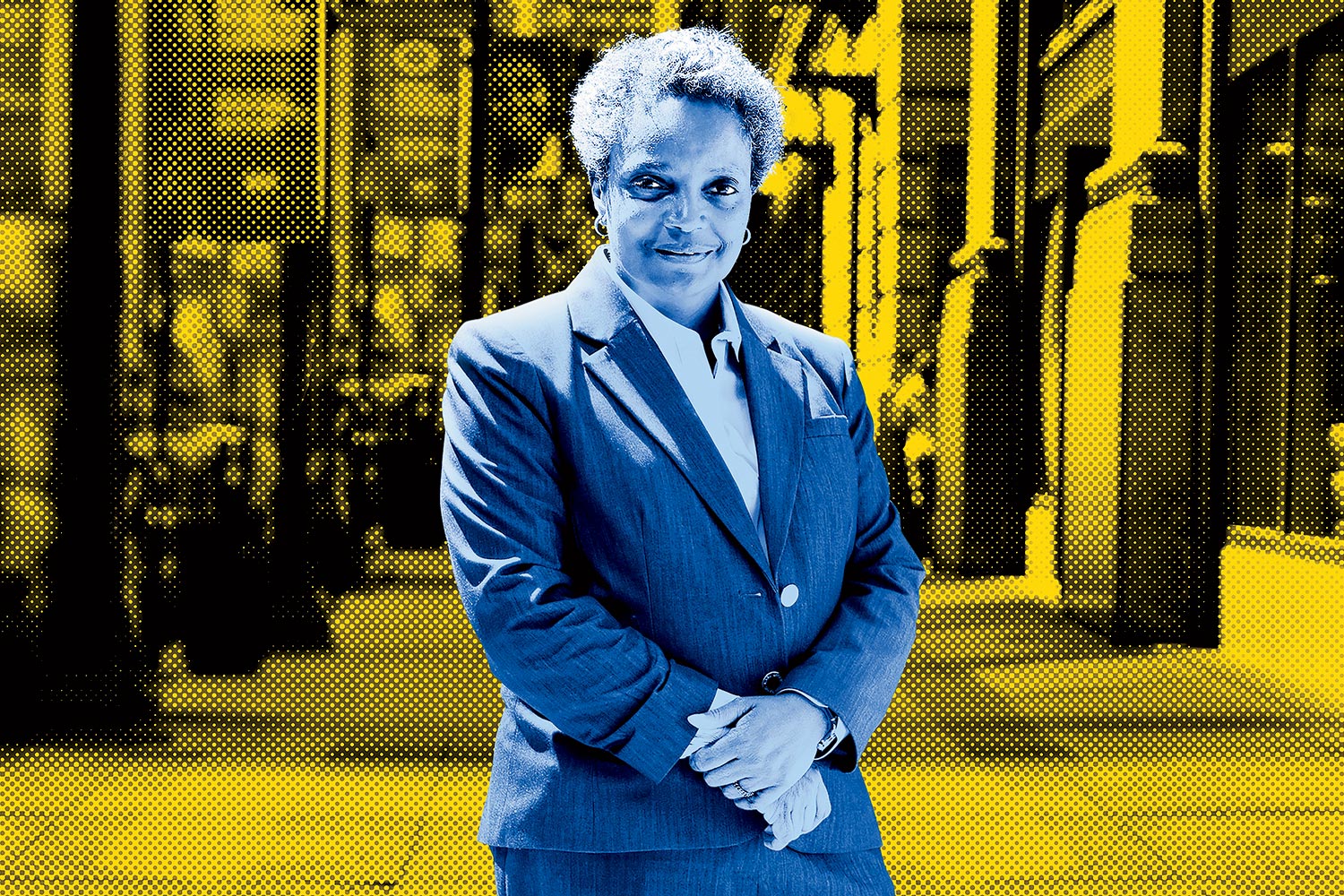Lori Lightfoot did not make a lot of friends in her four years as mayor. On election night in February, only two aldermen attended her party/wake at the Mid-America Carpenters Regional Council headquarters in River North: Scott Waguespack, her handpicked finance committee chair, and Jason Ervin, who was accompanying his wife, city treasurer and outspoken Lightfoot surrogate Melissa Conyears-Ervin.
“When I look back at the last four years, she has done things that upset the political apple cart, that upset a lot of people,” Waguespack said as returns rolled in showing that the mayor wouldn’t make the runoff. “She challenged the system in ways that had never been done before.”
Lightfoot was elected as a political outsider but was defeated for a second term partly because she didn’t act like a politician: That is, she was thin-skinned, petty, and vindictive, feuding with aldermen, business leaders, labor chiefs, and almost everyone else she dealt with. But what has gotten lost amid the many postmortems trashing her tenure is that she changed Chicago in ways that only an outsider could.
Political Reform
Lightfoot ran on ending the Chicago Way, as epitomized by longtime alderman Ed Burke, indicted in 2019 for shaking down a Burger King owner for a building permit. On her first day in office, she sent a message about power dynamics by signing an executive order instructing city departments not to defer to aldermen. She also passed an ethics reform ordinance prohibiting aldermen from outside employment that conflicts with the city’s interests, including handling property tax appeals, as Burke, a real estate attorney, made millions of dollars doing.
She did not succeed in ending altogether the practice of “aldermanic prerogative,” which gives ward bosses veto power over all projects on their turf; the City Council resisted her attempt to take away their power over zoning. But her changes made an impact. “No one is going to be able to go back to the way Ed Burke did things,” says Joanna Klonsky, a policy consultant to Lightfoot.
Neighborhood Investment
Lightfoot probably wants to be remembered most for Invest South/West, which, according to her office, has committed $2.2 billion in public and private investment to neglected African American and Latino areas. “Nobody since the King riots,” which burned out the West Side in 1968, “has invested in those neighborhoods,” says Hermene Hartman, publisher of N’Digo magazine. “Those neighborhoods have been dismissed, ignored. The dollars she’s put in for renovation, innovation, newness, that’s a renaissance.”
In Auburn Gresham, construction began last summer on the $43 million Imagine Evergreen — 58 units of affordable housing and commercial space to be occupied by a supper club and a West African food purveyor. In Englewood, Lightfoot held a groundbreaking last September for a $14 million “eco-food hub” in an abandoned firehouse, though the neighborhood is still waiting for work to begin. And for more than 50 years, Roseland and Altgeld Gardens on the Far South Side had been promised L stops by various city leaders; Lightfoot made it, as she put it, the city’s No. 1 transportation priority, and this year’s proposed federal budget includes $350 million for extending the Red Line from 95th to 130th Street.
“Lightfoot did a great job of sounding the alarm about the investments needed,” says Asiaha Butler, CEO of the Resident Association of Greater Englewood. “If the South and West Sides fail, Chicago fails. I think all of us would like to see some things materialize.”
LGBTQ+ Rights
The election of Lightfoot, an open lesbian, was a “watershed moment” for Chicago’s LGBTQ+ community, says Brian Johnson, CEO of Equality Illinois: “Before, there was this narrative to LGBTQ+ candidates: You can’t win over Bridgeport, Bronzeville, Belmont Cragin. When she won every ward, that created a sense of possibility for other LGBTQ+ candidates. The fact that this ceiling was broken by a Black lesbian was really important.”
Once in office, Lightfoot passed a resolution to drive more city contracts to LGBTQ+-owned enterprises and, for the first time, to collect data on how many the city does business with. The local trans rights movement also gained momentum under Lightfoot’s watch: Her 2023 budget included $75,600 to evaluate hiring practices with the goal of bringing more transgender employees to City Hall and to support the Chicago Therapy Collective’s Hire Trans Now initiative, which encourages employers to recruit more trans candidates.
A Casino Deal
Mayors Richard M. Daley and Rahm Emanuel wanted a casino in Chicago. They didn’t get one. Lightfoot successfully lobbied the General Assembly to approve a casino, which Bally’s will build on the site of the Chicago Tribune’s printing plant in River West. Lightfoot also made the casino an easier sell to the City Council by negotiating an agreement with Bally’s not to interfere with union organizing efforts among the expected 3,000 permanent employees. “That really was a game-changer in the way that the aldermen were seeing it,” says Bob Reiter, president of the Chicago Federation of Labor.
Workers’ Rights
During Lightfoot’s term, the city raised the minimum wage to $15 an hour in 2021 — four years ahead of the state — and passed the Fair Workweek ordinance, requiring employers of health care, hotel, restaurant, and other lower-wage workers to provide them with “predictable work schedules” and to compensate them for changes in those schedules. Labor advocates had failed to push that ordinance through Emanuel’s City Council. Lightfoot also began a universal basic income pilot program, providing 5,000 low-wage households with $500 a month for a year.
Reiter thinks Lightfoot’s upbringing played a role in her enthusiasm for such measures: “Growing up in a working-class family, she understands what it means and how transformational it can be to someone’s family when they have an opportunity to level the playing field.”
Lightfoot was not a traditional politician. That was her undoing. But the qualities that made her different from her predecessors led her to create a Chicago that a traditional politician never would have.



